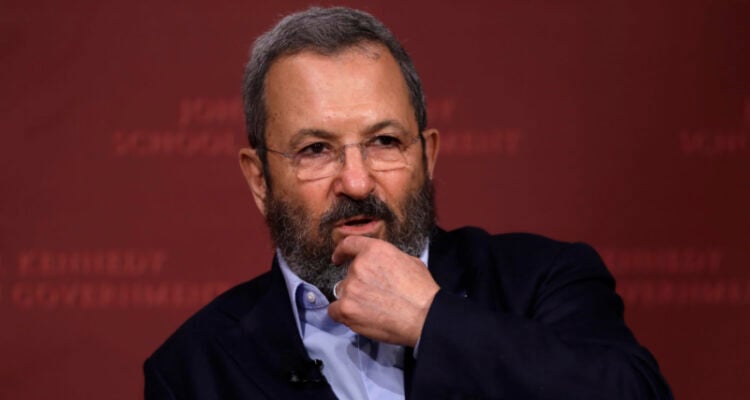Civil Service Commission questions why the Wexner Foundation paid Ehud Barak $2.3 million between 2004 and 2006.
By Batya Jerenberg, World Israel News
Top Wexner Foundation officials provided no adequate explanations to the Civil Service Commission (CSC) regarding huge payments the non-profit had made to former Prime Minister and Defense Minister Ehud Barak some 14 years ago, Globes reported Thursday.
Senior CSC officials recently met with Maj. Gen. (Res.) Ido Nehushtan, chairman of the Foundation’s Advisory Committee in Israel, and its Israel Fund director-general, Ra’anan Avital. Neither offered any substantial information on the issue other than what had already been published in the press.
Barak, who allegedly did research work for the non-profit for which he received $2.3 million, has also been close-mouthed about the payments – $1 million, $505,000 and $800,000 in separate payments between 2004 and 2006 – stating that he received the money for work done as a private citizen and that he paid the proper taxes on the income.
In reaction to the Globes article, he accused the paper of spreading “fake news” pushed by those close to Prime Minister Benjamin Netanyahu in order to “divert attention from the Israel Police’s decision that three cases of bribery, fraud and breach of trust should be brought against Mr. Netanyahu.”
The main focus of the organization, which is funded by the Wexner family, has never been research. According to its website, it is to develop Jewish leadership in North America and Israel by awarding scholarships to promising individuals, enabling them to obtain advanced degrees in various fields.
Specifically regarding Israel, the Wexner Israel Fellowship Program works together with the CSC to select up to 10 Israeli public officials and/or nonprofit leaders to attend Harvard University’s John F. Kennedy School of Government in order to pursue a Masters’ degree in Public Administration. The purpose is “to provide Israel’s next generation of public leaders with advanced training in public management and leadership development, thus enhancing the quality of democracy and the institutional vitality of Israel’s public sector.”
Some 260 Israelis have participated so far in this program, among them generals in the military, top government advisers and civil service leaders.
An unusual and costly expense
The report noted that not only was the $2.3 million an unusual expense for the foundation, but it was also by far the largest salary it paid to anyone during those years, absorbing a very high percentage of its working budget for Israel, which is approximately $1.5 million annually.
In an article Thursday on Israel’s News1 website, investigative reporter Yoav Yitzhak claimed a scoop in “revealing that the funds were paid as finance and political assistance to Barak, who ran for senior positions in the Labor Party and the government” during and immediately following that time period.
“The records were made in a fictitious manner that contradicts both the Parties Financing Law and the US tax laws,” Yitzhak concluded.
The journalist noted that Barak was not exactly a private citizen. He re-entered politics in November 2004 in an effort to unseat Shimon Peres as leader of the Labor Party, something that required months of preparation. Barak dropped out of that leadership race in September 2005, but in early 2007 he defeated Amir Peretz and was then appointed defense minister in Ehud Olmert’s government.





